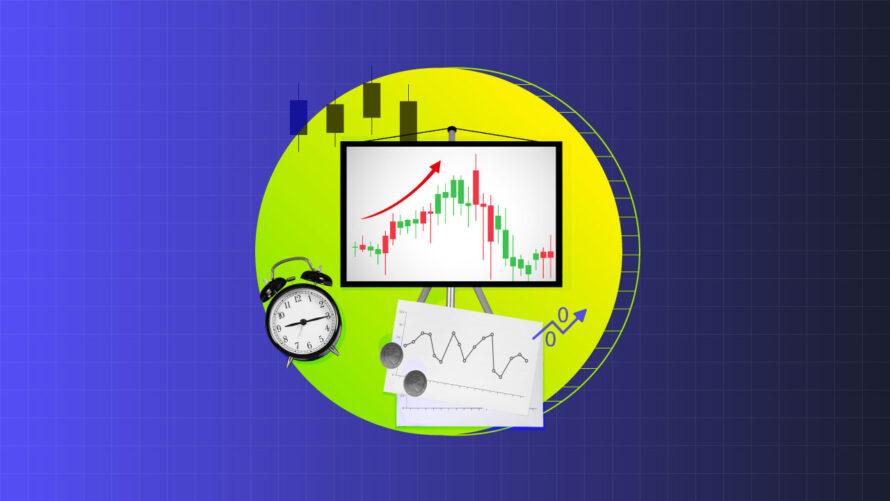What is pre-open market session in the stock market?

Are you new to stock market trading? Have you ever heard of pre-open market session or pre-open market timing? Not to worry, you are at the right place. The pre-open market session happens in Indian stock exchanges, NSE and BSE. Stock market trading sessions in India begin at 9:15 a.m. and end at 3:30 p.m. However, the stock market is also open from 9:00 a.m. to 9:15 a.m. for a pre-open market session, a practice that began in 2010.
Today, we will discuss everything you need to know about pre-open market sessions in the stock market. This blog post will explore what is pre-open market session in the stock market, how it works, the importance of pre-open sessions, and more.
Understanding the pre-open market session
If you are new to the stock market and want to know how to participate in the pre-open market session, you should start with the basics. Knowing about the pre-open market session is important for investors to comprehend stock price discoveries.
By definition, the pre-open market session or the pre-open market time is a 15-minute window from 9:00 a.m. to 9:15 a.m. before the actual trading starts. This window helps traders identify the equilibrium prices of the day. This 15-minute pre-open market session consists of 3 phases. The first phase or order collection period lasts only for 8 minutes from 9:00 am to 9:08 am.
How does pre-open session in share market help reduce volatility?
Pre-open market session in the Indian stock market began in 2010, seeking to reduce market volatility and unwanted market movements. The pre-open sessions help the stock market in stock price stabilization of companies according to genuine demand and supply of shares. The equilibrium price refers to the price point at which the maximum number of stocks can be traded depending on the demand and supply and the price.
Stock market timings in India: Break-up of the pre-open market session
Let us understand how the pre-open market session works, by breaking up three different phases of the pre-open session.
1. Order Entry Session
The pre-open market time or session runs for 15 minutes from 9:00 a.m. to 9:15 a.m. and consists of three different phases. The first phase is the order entry session which begins at 9:00 a.m. and ends at 9:08 a.m. Within these 8 minutes, you can:
- Place an order to buy or sell stocks.
- Modify or cancel orders.
After this 8-minute first session, the market does not accept new orders.
2. Order Matching Session
The second phase or session of the pre-open market session is the order matching session. This phase begins after the first phase or order entry session ends at 9:08 am. The order matching session is a 4-minute session that begins at 9:08 a.m. and ends at 9:12 a.m. During the order matching session, the tasks undertaken include-
- Order matching and confirmation
- Calculating the opening price of stocks for the normal session.
During the second phase, one cannot modify, buy, sell, or cancel orders.
3. Buffer Session
The last phase of the pre-open session is called the Buffer session. The buffer session begins at 9:12 a.m. and ends at 9:15 a.m. as the session only lasts for 3 minutes. During this session, the following tasks are performed:
- Buffer session
- Oversees the transition from pre-open session to normal market opening.
In short, this buffer session cancels out abnormalities in the earlier sessions and prepares the ground for the normal trading session.
How is the stock’s opening price in the pre-open market session achieved?
We have already discussed what is pre-open market session in the stock market and its three different phases. Now, we will learn how the opening price of stocks during the normal market session is achieved during the pre-open market session.
During the pre-open session, the call auction takes all the orders to achieve the equilibrium price of stocks. The equilibrium price is technically the price at which the maximum number of stocks can be traded solely depending on demand-supply and price factors.
Let’s learn how the pre-open sessions achieve opening prices through detailed case studies.
Case Study
The equilibrium price determination process is shown below. The prices mentioned are the bids received for a particular stock between 9.00 a.m. and 9.15 a.m. Essentially, demand and supply will help the exchange determine the equilibrium price, the band at which the maximum number of shares can be bought or sold. For instance, as the table below shows, the opening price will be INR105 where a maximum of 27,500 shares can be traded.
| Share Price | Order Book | Demand and Supply quantity | Maximum Tradable Quantity | ||
| Buy | Sell | Demand | Supply | ||
| 103 | 13500 | 11500 | 50500 | 11500 | 11500 |
| 104 | 9500 | 9800 | 37000 | 21300 | 21300 |
| 105 | 12000 | 15000 | 27500 | 36300 | 27500 |
| 106 | 6500 | 12000 | 15500 | 48300 | 15500 |
| 107 | 5000 | 12500 | 9000 | 60800 | 9000 |
| 108 | 4000 | 8500 | 4000 | 69300 | 4000 |
Data Source: NSE
Who can trade in a pre-open market session?
You have already learned what is pre-open market session in the stock market. It is time to know if you are eligible to trade in the pre-open market session. To be sure, there is no restriction on who can trade in a pre-open market session. However, stock brokers do not generally offer this feature in your account if you have a standard trading account. It is primarily because the pre- and post-market sessions are highly volatile and they do not want traders with standard trading accounts to trade in these highly volatile sessions.
If you also find yourself in a similar scenario, you must contact your stock broker for access to the pre-open market session. You will need to activate this feature if it does not come in your standard trading account.
Conclusion
The pre-open market session is a unique window to the stock market before the actual stock market opening. The pre-open market session begins and ends before the regular trade session. Both NSE and BSE operate pre-open market sessions to mitigate market volatility. However, only SENSEX 30 and NIFTY 50 stocks have been enabled for trading in pre-open market sessions. In this blog post, we have discussed everything about pre-open market timing and the breakup of various sessions.
Disclaimer
The stocks mentioned in this article are not recommendations. Please conduct your own research and due diligence before investing. Investment in securities market are subject to market risks, read all the related documents carefully before investing. Please read the Risk Disclosure documents carefully before investing in Equity Shares, Derivatives, Mutual fund, and/or other instruments traded on the Stock Exchanges. As investments are subject to market risks and price fluctuation risk, there is no assurance or guarantee that the investment objectives shall be achieved. Lemonn (Formerly known as NU Investors Technologies Pvt. Ltd) do not guarantee any assured returns on any investments. Past performance of securities/instruments is not indicative of their future performance.







